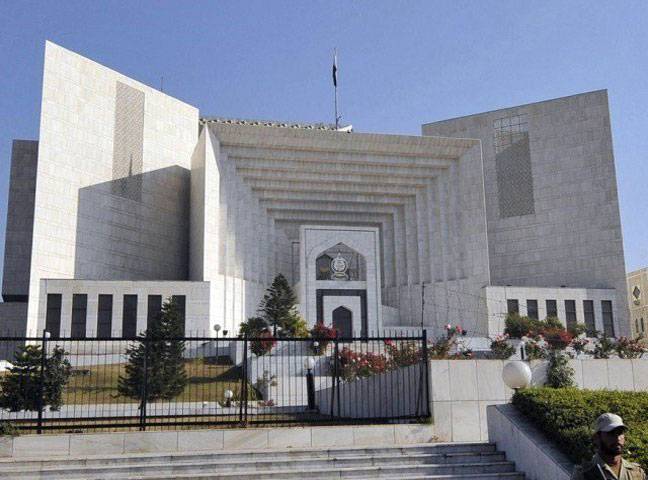KARACHI - The Supreme Court yesterday ordered wrapping up of all commercial activities from military land in the provincial metropolis.
The apex court’s monitoring bench headed by Justice GuIzar Ahmed, at its Karachi Registry, also ordered for continuation of operation in the city and for revival of Karachi Circular Railway (KCR).
The bench ordered that all encroachments from parks in Karachi must be cleared within a week and also directed to clear the footpaths, saying that charity organisations could not operate on footpaths.
About KCR, the apex court bench ordered that track of the KCR should be cleared by removing the encroachments from it so that the KCR could become functional.
“The KMC has removed 90 per cent of encroachments,” municipal commissioner informed the court.
The Supreme Court also ordered that Karachi Master Plan Department be taken back from the Sindh Building Control Authority (SBCA). Senior officials of relevant departments including Sindh government, railways, KMC, SBCA and military officials attended the hearing. The bench also directed that all parking areas on Rashid Minhas Road be cleared forthwith. Justice Gulzar Ahmed said that illegal constructions will not be allowed anywhere in the city.
The bench also directed for immediate demolition of a cinema built on military land on Rashid Minhas Road.
The SC Karachi Registry ordered that parking of cars on the roads outside restaurants situated on Rashid Minhas Road be stopped. Parking on roads outside buildings located on Korangi Road should also be halted, the top court ordered.
Tables and chairs placed on footpaths and at service lanes should also be removed immediately. Parking in front of buildings on Korangi Road will not be allowed any more.
The bench ordered demolition of walls built in front of a Mall on Sea View Road in Clifton. "Were these walls constructed to create a separate route for certain people?" asked Justice Ahmed. The Sindh government complained that other departments were not cooperating with it. At this, Justice Gulzar directed all institutions to cooperate.
Agencies add: “No matter how influential someone is, illegal encroachments will not be allowed,” Justice Gulzar said.
“It is decided that land will be cleared of encroachments,” he added.
Reviewing the progress in anti-encroachment operation in the city, Justice Gulzar who is monitoring the drive ordered that Karachi Master Plan should work under the supervision of the government of Sindh.
Justice Gulzar said that Sindh Building Control Authority (SBCA) and other departments have destroyed the city and directed the provincial government to take reins of the Master Plan of Karachi and initiate a new planning.
The court also expressed resentment over slow pace of anti-encroachment operation and sought explanation from concerned departments about delay in removal of the encroachments from the city.
The Justice also asked why the encroached railways land could not be taken back so far. Justice Ahmed yesterday had sought details of the Pakistan Railways and Karachi Water and Sewerage Board’s (KWSB) retrieved land during the operation.
Justice Gulzar Ahmed also directed for removal of nurseries from footpaths and ordered demolition of marriage halls and cinema halls built on the encroached land.
The apex court judge also ordered removal of encroachments from Aziz Bhatti Park and the city’s other parks and transfer of the set ups of social organizations from footpaths to appropriate place.
He remarked that the footpaths are for pedestrians and should be used for it.
Last year, on Oct 27, the SC directed Mayor Karachi Wasim Akhtar to remove all encroachments from the city’s amenity plots and pavements with the help of law enforcement agencies and granted a 15-day deadline to city authorities for compliance of its orders.
The ongoing anti-encroachment drive by Karachi Metropolitan Corporation (KMC) has moved towards the decades-old book market, popularly known as Urdu Bazaar.






